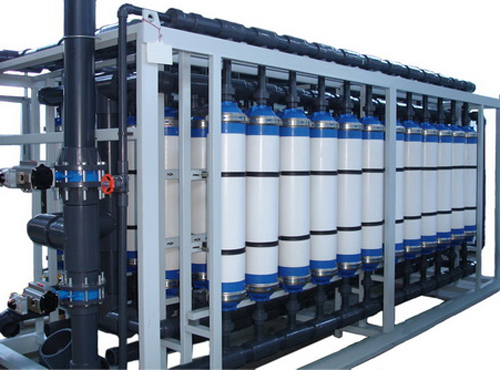Although China has a large amount of water resources, our per capita possession is very low. We have large areas of marine resources, but we are suffering from the bottleneck of desalination. We must drink water, we must have fresh water, we need water resources, We want to survive, we want to use sea water, we want desalination, we rely on membrane separation equipment and membrane technology.

Ultrafiltration membrane manufacturer membrane separation equipment principle: The equipment used for liquid membrane separation depends on the type of liquid membrane. When using an emulsion membrane, it is based on a general-purpose extraction equipment, supplemented by a mixing device for milk and a separation device for demulsification. When the supporting liquid film is used, a plate-and-frame type or a hollow fiber type structure is adopted depending on the configuration of the supporting material (microporous film).
From a global perspective, there are two main ways to desalinate sea water. One is thermal method, low temperature is multi-effect, economical and cheap, and the initial development is rapid. It began in the 1940s. However, there is no thermal method for seawater desalination, and the membrane method must also be started. Although the membrane method is slow to start, relying on its economic and industrial development, the use of membrane separation equipment for seawater desalination has become a popular method at this stage. Reverse osmosis, electroosmosis, membrane distillation, ultrafiltration and microfiltration are all ways in which membrane separation equipment desalinates seawater. According to the research results of the national 10,000-ton reverse osmosis desalination and its demonstration technology industrialization demonstration project in 2002, the deepening desalination rate with equipment can reach more than 99%.
Such technologies and equipment are more promising if they are used for industrialized batch desalination. Small desalination plants adopt such equipment, which can not only remove salt more than 99%, but also the same Time is the retention of suspended solids, bacteria, colloids, ions, macromolecular substances and other substances that cannot pass through the membrane. In one fell swoop, the desalination process was completed, and the unfavorable substances were intercepted, so that the aquatic products reached the standard of continued processing. New hopes for desalination, as well as membrane separation equipment and membrane technology.
